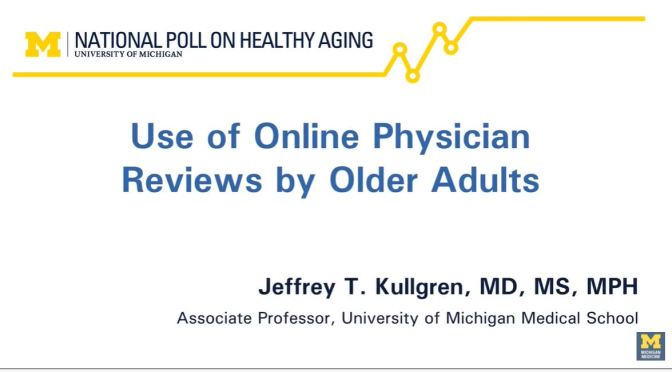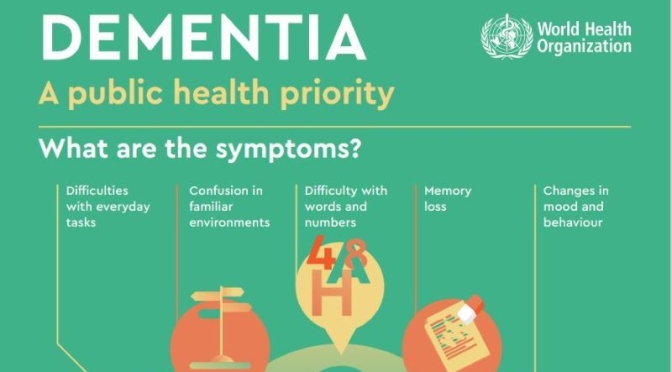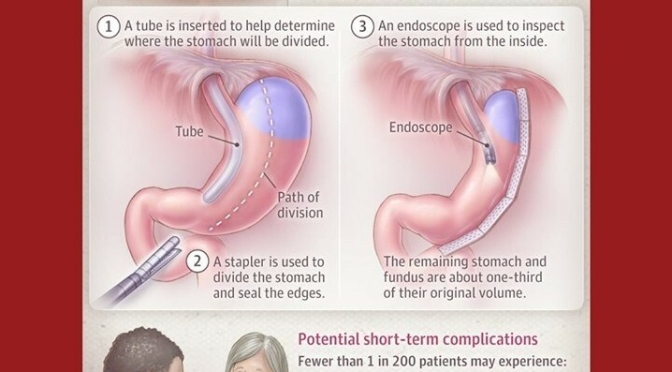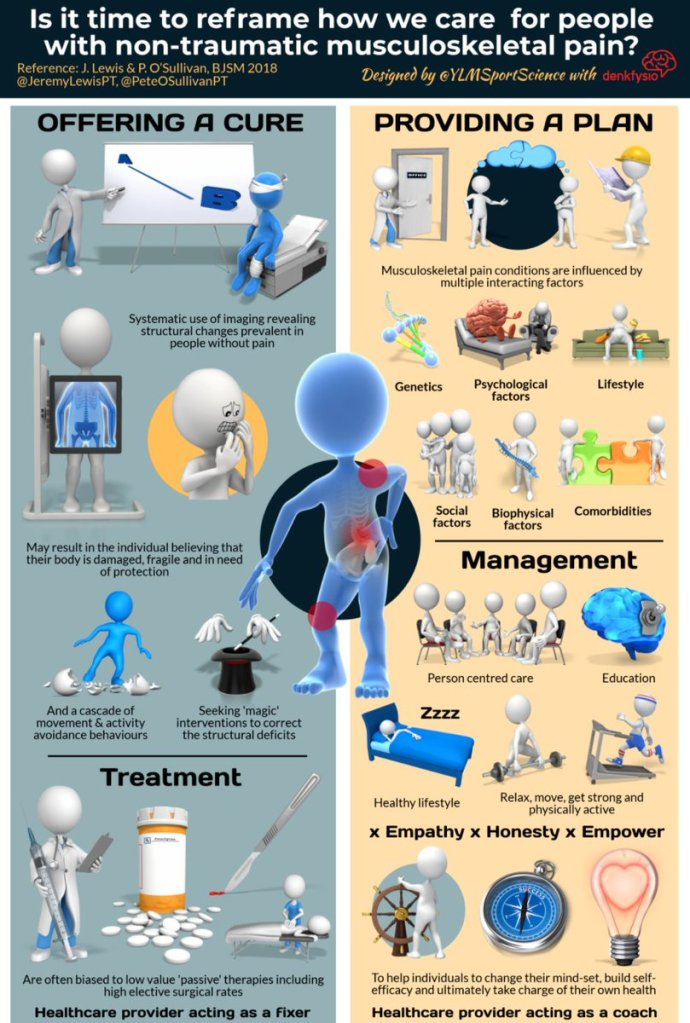The mission of COMPASS is to provide patients with access to comprehensive quality and safety data across a variety of Massachusetts General Hospital surgical specialties. In this video, learn about performance data for Mass General hip replacement surgery including its success rate and recovery and rehabilitation.
Tag Archives: Medical
Healthcare: Older Adults Prefer Convenience Over Reputation In Physicians
A new study by a team from the University of Michigan Institute for Healthcare Policy and Innovation shows that adults over age 50 place more importance on convenience-related factors, rather than reputation, when choosing a doctor.
The study, based on data from IHPI’s National Poll on Healthy Aging supported by AARP and Michigan Medicine, still shows that online ratings and reviews of physicians play an important role, and should receive attention from providers and policymakers.
Dr. Jeffrey Kullgren, a U-M primary care physician and lead author of the study, describes the findings.
Medical Technology: The ‘3D-Printed Heart’ (Video)
Imagine having the option to get a 3D-printed organ. Well, a team of biomedical engineers from Carnegie Mellon University has just developed the first flexible, full-size, 3D-print of a human heart, bringing us one step closer to that reality.
Additive manufacturing printers are popular, but are typically known to build hard objects using materials like plastic or metal. But rigid plastic organs aren’t very practical. These printers could be used with softer materials, like biological hydrogels — you know, to make a heart — but those tend to collapse mid-print. But this new method can change the game.
The 3D-printing technique is called Freeform Reversible Embedding of Suspended Hydrogels or FRESH. It can print biological structures with soft squishy materials like alginate, a biomaterial made from seaweed, which feels like human tissue. AND it cleverly solves that collapsing problem during print by suspending flexible materials inside a container of gelatin.
For this team of researchers it all starts with a MRI scan from a real heart. The scan gets “chopped-up” digitally into horizontal slices by a program which then translates them into code that a printer will understand. A needle-like nozzle moves through the gelatin support bath, extruding thin layers of alginate. The layers stack on top of each other to build the shape. When the print is complete, it’s put in an incubator overnight, where the temperature is raised to 37°C to gently melt away the gelatin support structure, leaving only the 3D-printed heart.
Infographic: ‘Dementia – Symptoms, Causes & Costs’
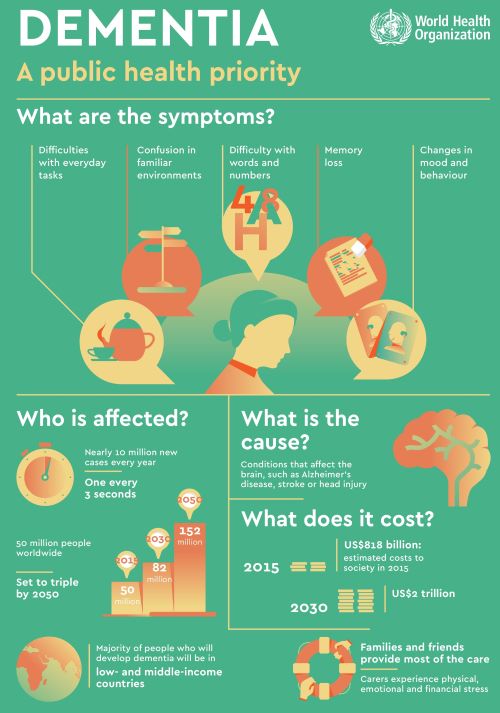

Infographic: ‘The Science Of How Masks Protect’
Medical Innovation Video: ‘Nerve Damage Repair’
A new recipe for patterning cells on a surface holds promise for spinal cord injuries. Video by the Office of Communications
Medicine: ‘The Future Of Neurosurgery’ (Video)
NYU Langone’s Kimmel Pavilion is home to the region’s newest and most technologically sophisticated neurosurgery suite. Designed to optimize patient care, our facilities are just one reason U.S. News & World Report’s “Best Hospitals” ranks NYU Langone among the top 10 hospitals in the country for neurology and neurosurgery.
Learn more about neurosurgery at NYU Langone and meet our renowned surgeons: https://nyulangone.org/locations/neur…SHOW LESS
Medical: ‘Johns Hopkins Musculoskeletal Center’ – For Muscles, Bones And Connective Tissues (Video)
The Johns Hopkins Musculoskeletal Center aims to streamline and improve access for diagnosis and treatment of conditions affecting muscles, bones and connective tissues. Each of the center’s locations feature a diverse group of physicians, therapists, and advanced practitioners who work together to bring you the right treatment at the right time.
Infographics: “Vertical Sleeve Gastrectomy”



